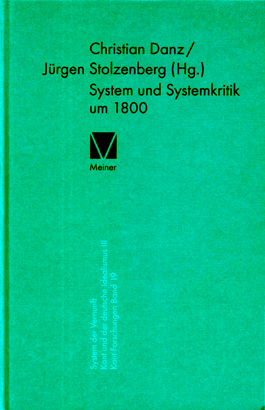
Descartes and the Doubting Mind
This book argues that the Cartesian mind has been widely misunderstood, in being typically treated as simply the subject of phenomenal consciousness, and ignoring its fundamentally intellectual character. The author argues that this interpretation has gone hand in hand with a misreading of Descartes' method of doubt which treats it as all-inclusive and universal in scope. In fact, the sceptical arguments of the First Meditation aim to lead the mind away from the senses and towards the intellectual 'notions' that the mind has within it, and which are never the subject of doubt. The author also places Descartes' concept of mind into the wider setting of his science of nature, arguing that Descartes wished to reveal a mental subject that would able to comprehend the new physics necessitated by Copernicus' heliocentrism.

Searle on External Realism and "Privileged Conceptual Scheme"
In the paper I question some of the claims made by Professor Searle about external realism, a position I accept. I briefly sum up Searle's position, and then proceed to the mentioned critique. The particular target of my paper is Searle's claim that external realist is to shun commitment to any particular ontology. I also point out that Searle's external realism is in some respects difficult to disentangle from ontological constructivism, a position incompatible with external realism. The paper concludes with an apology for the idea of a "Privileged Conceptual Scheme" that Searle views as misguided.

How Hume Became the 'New Hume': A Developmental Approach
The articles argues that with respect to the issue of causality we should distinguish between an 'early Hume' and a 'mature Hume'. In his early period, represented by The Treatise, Hume had not yet adopted the Newtonian active principles. In the mature period, however, represented in particular by The First Enquiry, his theory of causation has been transformed by a reception of Newton. This leads Hume to drop the condition of contiguity, which had excluded action-at-a-distance in The Treatise. It also leads him to allow real necessary connexions in nature though they are inaccessible to us, just as the real cause of gravitation was thought by the Newtonians to be unknowable for the human mind.

Are Humean Beliefs Pyrrhonian Appearances?: Hume's Critique of Pyrrhonism Revisited

In Search of Goodness
In: C. Cordner (ed.), Philosophy, Ethics and Common Humanity.
The article notes that goodness, while a central ethical concern, receives virtually no attention from philosophical ethics. Its argument that this is no accident takes partly the form of historical examination of the creation of the concept of the ethical (or moral) by the Greeks, which focused on that which is subject to judgement, i.e. on intentional action or will-construed responsibility. Since goodness, unlike 'the good', does not have this structure (it can neither be directly sought nor does the one in whom it is present know that he 'has' it), it is argued that ethics cannot deal with it and so largely ignores it. The articles concludes with the suggestion that to do justice to goodness, indeed to value more generally, we need to re-think what it means to act and the manner in which our action relates to what is around us.

Lev Thun - Alexis de Tocqueville: (korespondence 1835–1856)
(Correspondence between Leo Thun and Alexis de Tocqueville (1835-1856)).
Fořtová and Olšáková co-edited the volume, translated the texts and wrote the introductory study.
The notable Bohemian aristocrat Leo Thun (1811-1888) corresponded with Alexis de Tocqueville (1805-1859), the greatest French political thinker of the 19th century, over the course of twenty years. The topics varied from general issues such as the birth of democracy in the modern world and the necessity of introducing the penitentiary system to Europe, to personal concerns of Leo Thun related to his political career. The text brings together the complete collection of the correspondence in both Czech and French with editorial notes.

Hume's theory of Causation: Is there more than one?
It is traditionally assumed that there is only one theory of causality in Hume's writings. The article argues that we can distinguish between an early and a mature theory. It is further argued that the mature theory, strongly influenced by Newton's physics, accords with the New Hume sceptical realist) interpretation by asserting that real causal relations are not accessible to the human mind.

Berner und Frankfurter Ansätze zu Systemkonzeption Hegels
("Hegel's concept of system in the manuscripts of Bern and Frankfurt")
The article is an analysis of Hegel's early thinking about the system of spirit, which he develops already during his time in Bern and Frankfurt in the theological context, and uses later, albeit it in other terms, in the Phenomenology of Spirit.

Kant, I., První Úvod ke Kritice soudnosti
(Kant, The First Introduction to the Critique of Judgment)
(Kant, I.: Erste Fassung der Einleitung in die Kritik der Urteilskraft)
Table of Contents
The so-called First Introduction to the Critique of Judgement was not published during Kant's lifetime, for Kant wrote a replacement for the publication of the work when it appeared. It includes a large overview of the entirety of the Critical system, arranged in its final form.

Is Rorty a linguistic idealist?
The paper addresses the recurrent charge that Richard Rorty is a "linguistic idealist". I show what the charge consists of and try to explain that there is a charitable reading of Rorty's works, according to which he is not guilty of linguistic idealism. This reading draws on Putnam's well-known conception of "internal realism" and accounts for the causal independence of the world on our linguistic practices. I also show how we can reconcile this causal independence of things and the sense of our discourse being guided by them with our autonomy with regard to the construction of various "vocabularies" with which we describe, or cope with, reality. In the final part, I address in some detail Rorty's animadversions concerning the idea of the intrinsic nature of reality. I show them to be only partly successful.




